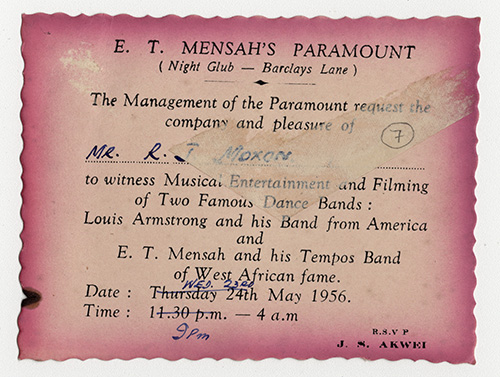|
Onuora Nzekwu
Onuora Nzekwu () also known as Joseph Onuora Nzekwu (19 February 1928 – 21 April 2017) was a Nigerian professor, writer and editor from the Igbo people. He is author of the 1961 novel '' Wand of Noble Wood'' and the 1963 novel '' Eze Goes to School'' which was among the African Writers Series. Biography Nzekwu was born in Kafanchan, Kaduna State, to Mr. Obiese Nzekwu and Mrs. Mary Ogugua Nzekwu (née Aghadiuno) of Onitsha in Anambra State. Bivne's Space, 3 March 2012. In January 1956, Nzekwu joined the Federal Civil Service and wo ... [...More Info...] [...Related Items...] OR: [Wikipedia] [Google] [Baidu] |
Professor
Professor (commonly abbreviated as Prof.) is an academic rank at universities and other post-secondary education and research institutions in most countries. Literally, ''professor'' derives from Latin as a "person who professes". Professors are usually experts in their field and teachers of the highest rank. In most systems of academic ranks, "professor" as an unqualified title refers only to the most senior academic position, sometimes informally known as "full professor". In some countries and institutions, the word "professor" is also used in titles of lower ranks such as associate professor and assistant professor; this is particularly the case in the United States, where the unqualified word is also used colloquially to refer to associate and assistant professors as well. This usage would be considered incorrect among other academic communities. However, the otherwise unqualified title "Professor" designated with a capital letter nearly always refers to a full profes ... [...More Info...] [...Related Items...] OR: [Wikipedia] [Google] [Baidu] |
South East (Nigeria)
The South East (often hyphenated to the South-East) is the one of the six geopolitical zones of Nigeria representing both a geographic and political region of the country's inland southeast. It comprises five states – Abia, Anambra, Ebonyi, Enugu, and Imo. The zone is bounded by the River Niger on the west, the riverine Niger Delta on the south, the flat North Central to the north, and the Cross River on the east. It is divided between the Cross–Niger transition forests ecoregions in the south and the Guinean forest–savanna mosaic in the drier north. Culturally, the vast majority of the zone falls within Igboland–the indigenous cultural homeland of the Igbo people, a group which makes up the largest ethnic percentage of the southeastern population at over 90%. Although the South East is the smallest geopolitical zone, it contributes greatly to the Nigerian economy due to oil and natural gas reserves along with a growing industrialized economy. The region has a popul ... [...More Info...] [...Related Items...] OR: [Wikipedia] [Google] [Baidu] |
Ahmad Daggash (Story Of The True)
Ahmad ( ar, أحمد, ʾAḥmad) is an Arabic male given name common in most parts of the Muslim world. Other spellings of the name include Ahmed and Ahmet. Etymology The word derives from the root (ḥ-m-d), from the Arabic (), from the verb (''ḥameda'', "to thank or to praise"), non-past participle (). Lexicology As an Arabic name, it has its origins in a Quranic prophecy attributed to Jesus in the Quran which most Islamic scholars concede is about Muhammad. It also shares the same roots as Mahmud, Muhammad and Hamed. In its transliteration, the name has one of the highest number of spelling variations in the world. Though Islamic scholars attribute the name Ahmed to Muhammed, the verse itself is about a Messenger named Ahmed, whilst Muhammed was a Messenger-Prophet. Some Islamic traditions view the name Ahmad as another given name of Muhammad at birth by his mother, considered by Muslims to be the more esoteric name of Muhammad and central to understanding his nat ... [...More Info...] [...Related Items...] OR: [Wikipedia] [Google] [Baidu] |
Faith Of Our Father's
Faith, derived from Latin ''fides'' and Old French ''feid'', is confidence or trust in a person, thing, or In the context of religion, one can define faith as "belief in God or in the doctrines or teachings of religion". Religious people often think of faith as confidence based on a perceived degree of warrant, or evidence while others who are more skeptical of religion tend to think of faith as simply belief without evidence.Russell, Bertrand"Will Religious Faith Cure Our Troubles?" ''Human Society in Ethics and Politics''. Ch 7. Pt 2. Retrieved 16 August 2009. Etymology The English word ''faith'' is thought to date from 1200 to 1250, from the Middle English ''feith'', via Anglo-French ''fed'', Old French ''feid'', ''feit'' from Latin ''fidem'', accusative of ''fidēs'' (trust), akin to ''fīdere'' (to trust). Stages of faith development James W. Fowler (1940–2015) proposes a series of stages of faith-development (or spiritual development) across the human lifespan. ... [...More Info...] [...Related Items...] OR: [Wikipedia] [Google] [Baidu] |
The Chima Dynasty In Onitsha
''The'' () is a grammatical article in English, denoting persons or things that are already or about to be mentioned, under discussion, implied or otherwise presumed familiar to listeners, readers, or speakers. It is the definite article in English. ''The'' is the most frequently used word in the English language; studies and analyses of texts have found it to account for seven percent of all printed English-language words. It is derived from gendered articles in Old English which combined in Middle English and now has a single form used with nouns of any gender. The word can be used with both singular and plural nouns, and with a noun that starts with any letter. This is different from many other languages, which have different forms of the definite article for different genders or numbers. Pronunciation In most dialects, "the" is pronounced as (with the voiced dental fricative followed by a schwa) when followed by a consonant sound, and as (homophone of the archai ... [...More Info...] [...Related Items...] OR: [Wikipedia] [Google] [Baidu] |
Highlife For Lizards
Highlife is a music genre that started in present-day Ghana in the 19th century, during its history as a colony of the British Empire and through its trade routes in coastal areas. It describes multiple local fusions of African metre and western jazz melodies. It uses the melodic and main rhythmic structures of traditional Akan music, Kpanlogo Music of the Ga people, but is typically played with Western instruments. Highlife is characterized by jazzy horns and multiple guitars which lead the band and its use of the two-finger plucking guitar style that is typical of African music. Recently it has acquired an uptempo, synth-driven sound. Highlife gained popularity in the genre "Native Blues" prior to World War II before production was shut down. After the war its popularity came back within the Igbo people of Nigeria, taking their own traditional guitar riffs and the influence of the Ghanaian highlife performing ideas, mixed and perfected it to form Igbo highlife whic ... [...More Info...] [...Related Items...] OR: [Wikipedia] [Google] [Baidu] |
Blade Among The Boys
A blade is the portion of a tool, weapon, or machine with an edge that is designed to puncture, chop, slice or scrape surfaces or materials. Blades are typically made from materials that are harder than those they are to be used on. Historically, humans have made blades from flaking stones such as flint or obsidian, and from various metal such as copper, bronze and iron. Modern blades are often made of steel or ceramic. Blades are one of humanity's oldest tools, and continue to be used for combat, food preparation, and other purposes. Blades work by concentrating force on the cutting edge. Certain blades, such as those used on bread knives or saws, are serrated, further concentrating force on the point of each tooth. Uses During food preparation, knives are mainly used for slicing, chopping, and piercing. In combat, a blade may be used to slash or puncture, and may also be thrown or otherwise propelled. The function is to sever a nerve, muscle or tendon fibers, or blood vess ... [...More Info...] [...Related Items...] OR: [Wikipedia] [Google] [Baidu] |
African University Press
African or Africans may refer to: * Anything from or pertaining to the continent of Africa: ** People who are native to Africa, descendants of natives of Africa, or individuals who trace their ancestry to indigenous inhabitants of Africa *** Ethnic groups of Africa *** Demographics of Africa *** African diaspora ** African, an adjective referring to something of, from, or related to the African Union ** Citizenship of the African Union ** Demographics of the African Union **Africanfuturism ** African art ** *** African jazz (other) ** African cuisine ** African culture ** African languages ** African music ** African Union ** African lion, a lion population in Africa Books and radio * ''The African'' (essay), a story by French author J. M. G. Le Clézio * ''The African'' (Conton novel), a novel by William Farquhar Conton * ''The African'' (Courlander novel), a novel by Harold Courlander * ''The Africans'' (radio program) Music * "African", a song by Peter ... [...More Info...] [...Related Items...] OR: [Wikipedia] [Google] [Baidu] |
Michael Crowder
Michael Crowder (9 June 1934 – 14 August 1988) was a British historian and author notable for his books on the history of Africa and particularly on the history of West Africa. Early life and education Michael was born in London and educated at Mill Hill School. After earning a first class honours degree in Politics, Philosophy and Economics (PPE) at Hertford College, Oxford in 1957, he returned to Lagos (he had previously been conscripted to the Nigeria Regiment in Lagos from 1953 to 1954 for his British national service) to become first Editor of ''Nigeria Magazine'' in 1959. Academic career Michael commenced his career as a secretary at the Institute of African Studies at the University of Ibadan. In 1964 he was Visiting Lecturer in African History at the University of California, Berkeley and Director of the Institute of African Studies at Fourah Bay College, University of Sierra Leone in 1965. While in Nigeria from 1968 to 1978 he was appointed as Research Professor a ... [...More Info...] [...Related Items...] OR: [Wikipedia] [Google] [Baidu] |
Officer Of The Order Of The Niger
Nigeria became an independent country on 1 October 1960 and in 1963 became the Federal Republic of Nigeria Nigeria ( ), , ig, Naìjíríyà, yo, Nàìjíríà, pcm, Naijá , ff, Naajeeriya, kcg, Naijeriya officially the Federal Republic of Nigeria, is a country in West Africa. It is situated between the Sahel to the north and the Gulf of G .... The republic instituted two orders of merit: the Order of the Niger and the Order of the Federal Republic. Award The two highest honours, the Grand Commander in the Order of the Federal Republic and Grand Commander in the Order of the Niger are awarded to the president and vice-president respectively. The presiding judge in the Supreme Court and the chairman of the Senate are qualitative and ex officio commander in the Order of the Niger. Grades The Nigerians followed the British example in the form and structure of the order. Similarly, there are post-nominal letters for members of the Order of the Niger. * Grand Co ... [...More Info...] [...Related Items...] OR: [Wikipedia] [Google] [Baidu] |
Nzekwu
Onuora Nzekwu () also known as Joseph Onuora Nzekwu (19 February 1928 – 21 April 2017) was a Nigerian professor, writer and editor from the Igbo people. He is author of the 1961 novel '' Wand of Noble Wood'' and the 1963 novel '' Eze Goes to School'' which was among the African Writers Series. Biography Nzekwu was born in Kafanchan, Kaduna State, to Mr. Obiese Nzekwu and Mrs. Mary Ogugua Nzekwu (née Aghadiuno) of Onitsha in Anambra State. Bivne's Space, 3 March 2012. In January 1956, Nzekwu joined the Federal Civil Service and w ... [...More Info...] [...Related Items...] OR: [Wikipedia] [Google] [Baidu] |

.png)


